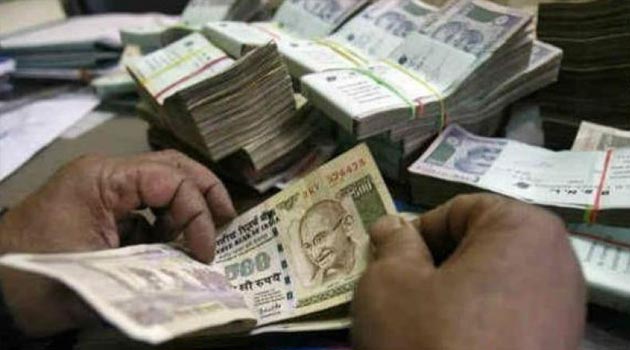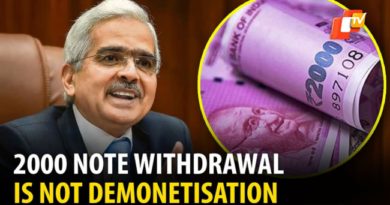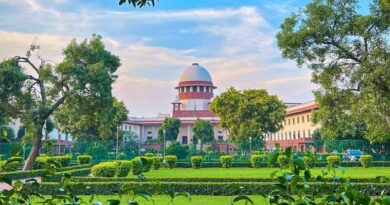DEMONETISATION – THE PAIN AND THE GAIN
In the history of India’s independence since 1947 there have been many incidents that have touched the lives of a large number of citizens like partition of the country, bank nationalization, green revolution, white revolution , emergency, liberalization to quote a few. The incident which has touched each and every individual in the country more than any other incident is the demonetization of 1000 and 500 notes , by now known by the short name- SBN- Specified Bank Notes, on 08/11/16. It is not that demonetization was not done in our country in the past that this dose of demonetization is of any great significance. The importance of the present bout of demonetization is from the fact that it was announced all of a sudden without giving any notice to anyone and also from the fact that it covered 86% of the value of the notes in circulation. In a country where 90% of the transactions are carried out in cash it was indeed a monumental and bold decision.
When the Prime Minister announced the scheme he told the people of the country that they should bear the short term pain for which they will compensated with long term gain. There can be no two opinion on the fact that for the uninformed and the unlettered of the country who thrive on daily wages or earnings the scheme was indeed life shattering. In the same way for the people in the far flung and remote villages of the country the scheme was life damaging. These are the sections of the society who have least reserve strength and are also not initiated into cashless domain.
The informed and educated sections of the society though also felt the shock initially but because of their inherent reserve strength and they being already initiated into the digital world could handle the situation with little pain.
There were obviously some sections of the society who were the most affected as it meant a total wash out of their reserve strength or more specifically hidden wealth and it is this section of the society which is vocal in its opposition to the scheme.
It should be said to the credit of the ordinary citizens that they bore the brunt of the pain but did not complain about it for the reason that they were bearing the it in national interest. This speaks volumes of the spirit of the ordinary citizens.
Whatever the strata of society one belongs to one has to see what will be the impact of the scheme to a vast majority of the population in the medium and long term. To appreciate this one has to understand what were the triggers that made the scheme necessary.
The situation as prevailing on 8/11/16.
- A general culture of faith in cash than on non-cash instruments in a vast majority of the population.
- The index of a mature economy is the quantum of cash to GDP. In advanced countries it is less than 5% but in India it is nearly 12%.
- 90% of the transactions in the country are done in cash only.
What were the consequences of this ?
- Cash transactions do not leave behind any trail.
- It promotes the parallel economy or more popularly called the black money or black economy. This section of the economy is totally out of the mainstream economy, under no kind of regulation and not contributing anything to the national exchequer. In India this section is as big or even bigger than the mainstream economy. This kind of dualism impacted adversely the people and the policy making mechanism.
- It encouraged rampant corruption at all levels. Higher the denomination of notes higher the scope for corruption.
- There was also a critical problem of fake notes in SBNs in circulation, whose number was increasing year after year. It was difficult for even bankers to differentiate between a genuine and a fake note leave alone that of the ordinary public.
What were the consequences of this dualism in the economy?
- It cannot be said that all economic activities which take place in cash were only in the black economy. There is a dominant section of the society which can be called the informal sector which contributes about 45% of the GDP of the country. It consists mostly of small traders and businesses, street vendors, and daily wage earners. This sector works 90% on cash only but their contribution to the black economy may be nil or negligible. This sector is also the sector which is most vulnerable in terms of reserve strength and is also out of the digital space.
- SBNs combined with the liberalization and globalization initiated in the 90’s was indeed a big boon to big businesses. It was this sector which benefitted the most as it could manage to generate enormous black money and wealth or more specifically called incomes that were not taxed. The availability of SBNs made it easy for them to store and transact with them. It was this money that was fuelling the parallel economy that was outside the mainstream economy and which was as big or even bigger than the mainstream economy.
- SBNs provided an excellent nexus between big businesses, politicians and the officials in the bureaucracy leading to large scale corruption. Crony capitalism was the order of the day and there was no transparency in the allocation scarce natural resources like coal, spectrum, minerals to quote a few. Businesses that somehow managed to capture scare natural resources by whatever means possible could amass immense wealth.
- The high value currency notes which should have been used for genuine business activities was either hidden or used mostly in the least productive sectors of the economy ie real estate, jewellery and in institutions of higher learning in the private sector. Consequently all these things were beyond the reach of the common man or the honest taxpaying citizen.
- The country’s prosperity grew year after year with the GDP growing at an average rate of 7%-8%
since 1991 but the distribution was lopsided. The rich become richer and the poor became poorer and this was very much aided by the presence of high denomination notes.
- Black money and corruption money were freely flowing into social evils like murder for gain, crimes, extortions, gambling, drugs, murdering of whistle blowers thereby making life difficult for the ordinary citizens.
- Fake currency was freely flowing into financing of terrorists and naxalists making the government to spend heavily on encountering them.
- A situation had developed in the country since independence and more so since liberalization that honest taxpaying and law abiding citizens were sidelined, marginalized and made insignificant and those with black money, corruption money were getting predominance over them and also becoming opinion makers and decision makers of the country. This was the greatest danger to the future of the country.
The pain caused by demonetization
- A disruption of this magnitude is bound to create disturbances and hardships to a large section of the population. The section of the population which suffered the greatest pain was the lower strata of society and those belonging to the informal sector. While the situation was quickly resolved in metro and urban areas in the shortest possible time the same was not the case in rural areas due to logistical and connectivity issues.
- The hardships faced by the people were sought to be resolved through pumping fresh currency of lower denomination notes and it is being targeted to resolve the same by end of Dec 16 or latest by the middle of Jan 17.
- The growth in GDP of the country is bound to be depressed in the quarters of Dec 16 and Mar 17.
- The hardships are not insurmountable and permanent in nature. It is only that there is a time lag in the resolution process.
The gain caused by demonetization
- The greatest gain of demonetization is that the hidden wealth has come into in the formal mainstream economy. Of the about 14.50 lakh crore of SBNs about 12.44 lakh crs have come to the banking system .This will be available for lending to the productive segments of the economy.
- The black economy of the country has been completely shattered. A fear psychosis has been created that in future it will be worthless to generate black money and it will be better to thrive in the mainstream economy with pride, honour and peace of mind.
- Black money and corruption go hand in hand. Each supports the other. If black money generation can be shattered then corruption will also be shattered to a great extent although it cannot be totally eliminated.
- The greatest gain has been in terms of peace restored to areas affected by terrorism and naxalsim. With fake notes being rendered totally worthless the terrorists and naxalists have no incentive to carry on their jobs and have to resort to other legal ways to survive. So also crimes, murders for gains, extortions, hawala trades have come down to a great extent in all parts of country.
- Jewellery and real estate businesses which were the darling of the people are now finding it difficult to find customers.
- Tax compliance will improve substantially leading to increased revenues for the government and may also result in reduced tax rates in the future.
- The government will have more revenues due to greater tax compliance and this could lead to greater social spending on health care, sanitation, primary and secondary education , water supply ,rural electrification, roads, transport and communications etc .These are bound to generate employment and the multiplier effect will be growth of further downstream and related industries.
Should we stop with mere demonetization ?
- If the government stops with mere demonetization and does not take any follow up measures then it would amount gross injustice to the crores of people who bore the pain. It is therefore the duty of the government to give to the people of this country the long term gain that it had assured as compensation for the short term pain.
- A big push should be given to cashless economy through the digital medium. This is the most opportune time to push people away from the black economy. They should be forced to adopt the cashless mode whether they like it or not and they should not have any other alternatives.
- Adoption of the digital medium should be on a mission mode on a national level. The younger generation, the schools and colleges, media and those who are familiar with the digital medium can each contribute to spreading awareness to as many people as people on the benefits of adopting the digital medium.
- Credit, debit and prepaid cards, internet banking, wallets, mobile banking, aadhar enabled payments, IMPS, UPI and USSD are the various modes through transactions can take place.
- Threshold limits to be fixed beyond which transactions should never be done in cash.
- Quoting of PAN no. for all kinds of transaction beyond a certain threshold limit.
- Incentivisation of transactions undertaken through the digital medium.
- In the future it could be an ideal situation if there was no need for currency notes beyond Rs. 50/- or at the most Rs.100/-.
Benefits to the banking system.
- The immediate benefits to the banking system will be the huge inflow of funds as CASA deposits.
- Henceforth every citizen will endeavour to open a bank account just as he or she desires to have a mobile phone.
- Deposit and lending will be at reduced rates thereby increasing margins.
- Banks will be able to sell digital products which will be an additional source of income.
- Cash handling will come down substantially and so will be the problem of fake notes.
- Credit quality of banks will improve substantially. This is because till now borrowers submitted financial papers which were not a true reflection of their strengths and weaknesses. With the cashless push the borrowers will have to necessarily do their transactions with a trail and record and there will be a true representation of the actual statement of affairs. NPAs will be within manageable levels and there will no need for any anxiety on stressed assets.
Henceforth if every citizen of this country resolves not to any do transactions in cash then the day is not far off when black money and corruption can be substantially reduced if not totally eliminated.
Author
C.J.VIJAYBALAJI
FACULTY MEMBER –SPBTC MUMBAI
Published : Banking Finance, October 2018




